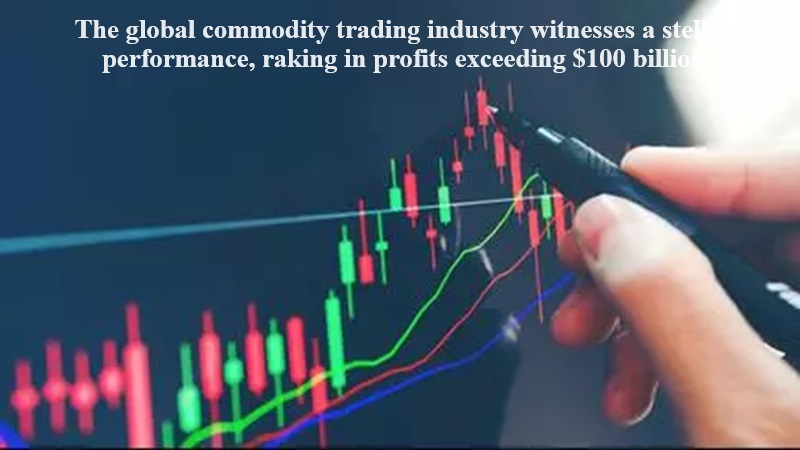
The global commodity trading sector had an exceptional year, as reported by Bloomberg News, with earnings surpassing $100 billion, making it the second-best year in its history.
Despite a slight decrease from the previous year, profits still exceeded past benchmarks, including those set during the financial crisis of 2008-2009.
According to analysis by consultancy firm Oliver Wyman LLC, strong margins persisted due to ongoing tight supply and demand dynamics, although earnings saw a slight dip.
Consultant Adam Perkins, as cited by Bloomberg, emphasized the industry’s robust margins, attributing them to persistent supply-demand imbalances.
Although specific financial results for many industry players are not yet available, projections suggest a more than 30 percent average decrease in profits for major independent trading houses compared to 2022’s record levels.
However, challenges such as disruptions and shortages in diesel and fuel oil supply offset decreased volatility in crude oil due to Russia-related factors.
Despite this, margins remained favorable for trading gas and power.
Leading firms involved in buying, storing, and transporting global resources find themselves in a strong position following an era of unprecedented profitability.
With substantial cash reserves, these entities are poised to reinforce their roles as essential providers of energy, metals, and food in the face of a gradual shift away from fossil fuels.
Notably, they have invested in various assets such as oil refineries, storage facilities, power plants, and even other trading companies.
Support from countries like Italy, Germany, the US, and Saudi Arabia has further strengthened their operations, ensuring the continuous supply of vital commodities like gas and copper.
Perkins highlights how independent traders have taken on a crucial role in energy security, traditionally held by other entities, reflecting a broader trend of ensuring stability and continuity in essential resource supplies.
As profits soar, executives and partners of predominantly private companies have accumulated significant wealth through share buybacks and dividend payouts.
This accumulation of wealth has facilitated a transition in leadership, with a new generation of leaders emerging as seasoned traders retire, shaping the future direction of these firms.
Perkins emphasizes the opportunities and challenges facing incoming leadership in the evolving industry landscape, amid heightened scrutiny and expectations.

Post Your Comments